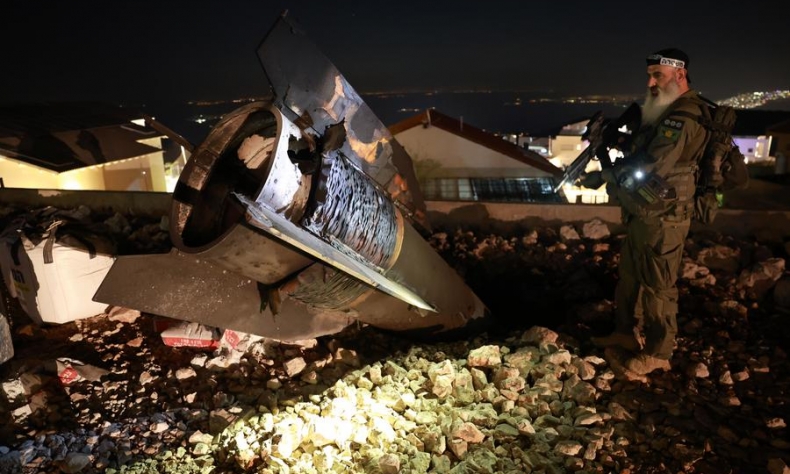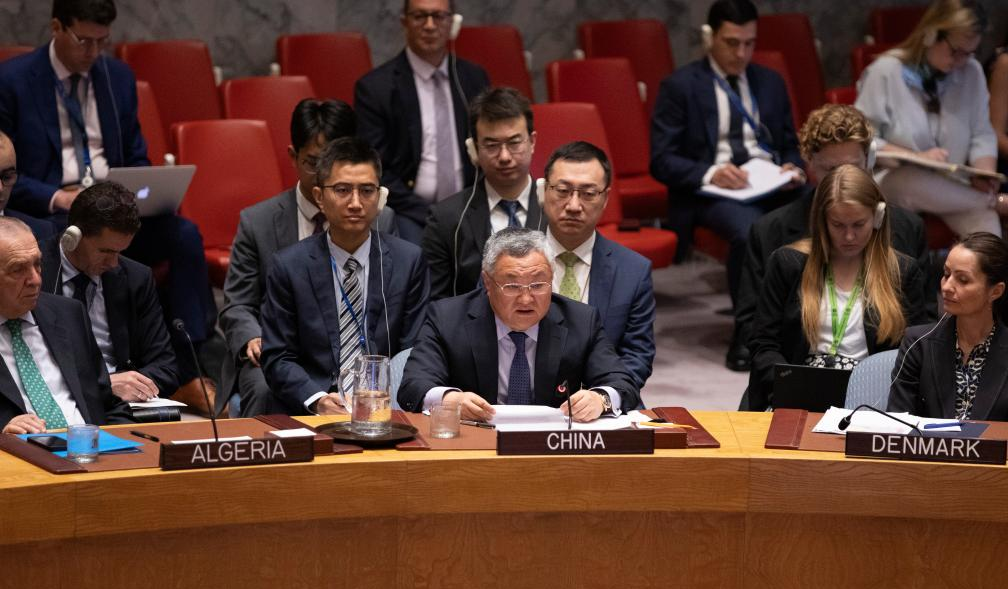Dialogue over Destruction

Peace in the Middle East cannot be dictated by force or one-sided allegiances. It must be built through inclusive diplomacy, patient negotiation and an unwavering commitment to stability.
In the early hours of June 13, a large-scale Israeli airstrike on Iranian military and nuclear sites escalated tension in an already volatile Middle East. Iran’s swift retaliation intensified the crisis. Their exchange of missiles and bombs resulted in significant casualties, leaving more than 580 dead and over 1,300 injured in Iran, and 24 deaths and more than 500 injuries reported in Israel, as of June 18.
The roots of the current conflict are multifaceted. Zhou Rong, a senior research fellow at the Chongyang Institute for Financial Studies at Renmin University in Beijing, said in an interview with Chinese broadcaster Shenzhen TV on June 16 that Israel’s objective goes beyond tactical strikes and it aims to disrupt Iran’s nuclear program and weaken the Iranian regime itself through a series of calculated eliminations targeting Iran’s most senior military leadership.
Zhou added that Tehran believed its ongoing dialogue with Washington might restrain Israeli action against Iran, only to be met with surprise strikes, indicating misjudgment regarding U.S. intentions.
As the region braces for further confrontation, the international community finds itself at a critical juncture, with calls for diplomacy growing louder. Among the nations advocating for de-escalation, China has emerged as a consistent voice for restraint and peaceful resolution.
China’s stance on the conflict is grounded in the principles of non-interference, respect for sovereignty and a commitment to multilateral dialogue.

Chinese Foreign Minister Wang Yi’s separate calls with the Iranian and Israeli foreign ministers on June 14 underscored China’s principled opposition to the use of force and its advocacy for international legal norms. “The urgent task is to immediately take measures to avoid escalation of the conflict, prevent the region from falling into greater turmoil and return to the track of resolving issues through diplomatic means, which is also the general consensus of the international community,” Wang stressed in his phone call with Israeli Foreign Minister Gideon Sa’ar.
Indeed, China’s diplomatic framework promotes “reconciliation over confrontation” and seeks to bring all parties back to the negotiating table. This is especially vital as the Iran-U.S. nuclear negotiations remain in limbo. The International Atomic Energy Agency’s June 12 resolution, accusing Iran of breaching non-proliferation commitments, gave Israel a pretext for military action. However, as Han Jianwei, an associate professor at the Middle East Studies Institute of Shanghai International Studies University, said in an interview with newspaper Xinmin Evening News‘ public account on super app Weixin, prolonged hostilities jeopardize prospects for a diplomatic solution to the Iranian nuclear issue.
The Iran-Israel conflict, though presently military in nature, is deeply rooted in geopolitical rivalries, historical mistrust and diverging national narratives. Yet, it is precisely in such complex environments that sustained diplomacy must prevail. China’s steady, neutral approach provides a roadmap, one that prioritizes dialogue over destruction and development over division.
In reflecting on the escalating crisis, it becomes clear that peace in the Middle East cannot be dictated by force or one-sided allegiances. It must be built through inclusive diplomacy, patient negotiation and an unwavering commitment to stability.
“Force cannot bring lasting peace, all international disputes should be settled through dialogue and consultation, and only by upholding the vision of common security can the legitimate concerns of all parties be thoroughly addressed,” Chinese Foreign Ministry spokesperson Guo Jiakun stressed at a press conference on June 16, in response to a question on the Iran-Israel conflict.
 Facebook
Facebook
 Twitter
Twitter
 Linkedin
Linkedin
 Google +
Google +










